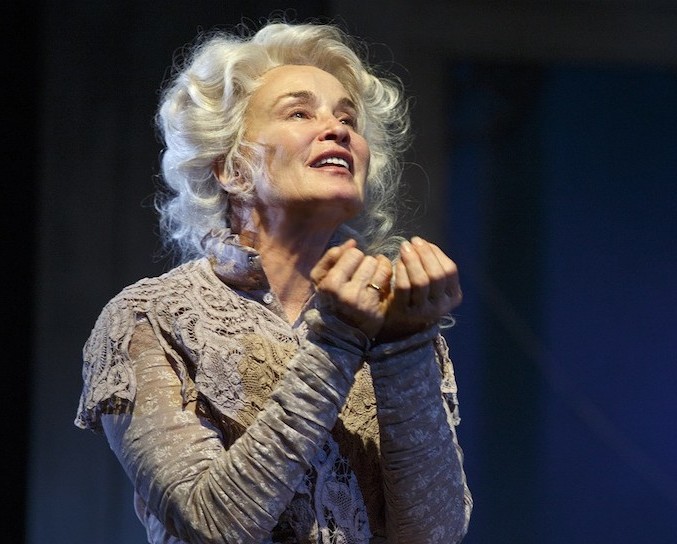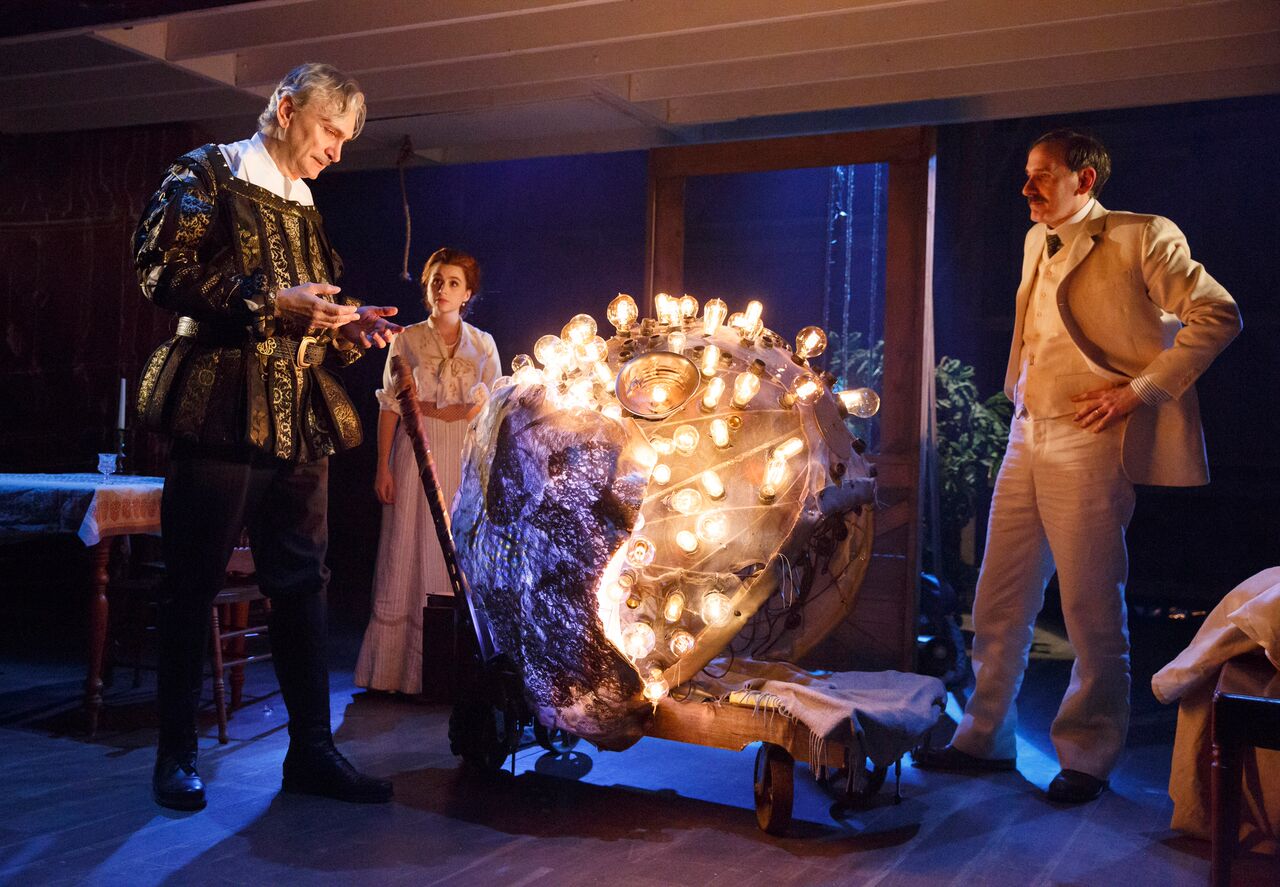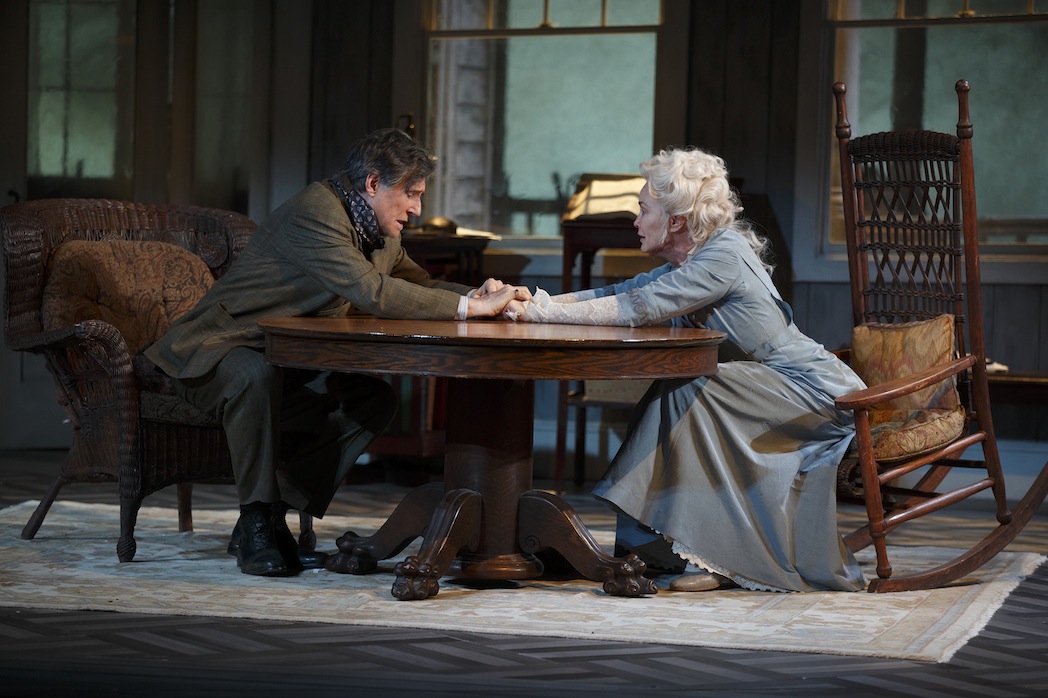

by JK Clarke
Eugene O’Neill didn’t really want the play many consider his magnum opus, Long Day’s Journey Into Night, to see the light of day . . . not for at least 25 years after his death anyway, as he stipulated in his will. But his widow (and third wife, actress Carlotta Monterey) found a legal loophole and transferred the rights to Yale University, allowing it to be produced a mere three years after he died. It’s likely he had some trepidation about the play for privacy reasons, as it was an intensely personal look at a period in the author’s life, with the characters portraying all his immediate family members in a thinly veiled (if at all) biographical sketch. But it’s an immensely important, relatable, American play: just about anyone watching it feels a touch of their own life represented on the stage. And when performed well, as it almost certainly must be, due to its unusually long run time of nearly four hours, it’s a devastating piece of theater.
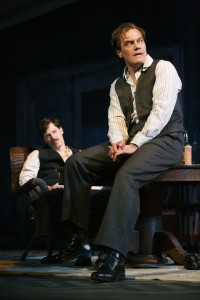

The new Broadway production of Long Day’s Journey Into Night, presented by the Roundabout Theatre Company and playing at the American Airlines Theatre, does not disappoint. The piece flies by for even the most impatient theatergoers, largely as a result of Jessica Lange’s gripping, emotional and sympathetic portrayal of Mary Cavan Tyrone, a housewife and mother with a gnawing addiction to morphine. Mary’s addiction, naturally, is a symptom of bigger problems—an alcoholic husband, a bitter and alcoholic son, another son who seems to have “consumption,” and a baby lost in infancy. Most of all, she appears to have the regrets of a life not lived. As a wealthy young convent student who played piano masterfully, she was swept away by James Tyrone, the handsome, famous stage actor, when she was just 18. From there she abandoned her dreams to become a mother and a wife. We feel Lange’s ambivalence in the deepest way and it’s easy to sympathize with her need to escape. Her husband, played as compassionate, complex and with a perfect Irish trill by Gabriel Byrne, wants desperately to retrieve Mary from the other side of the addiction abyss, but he is mired in the double standard of his own, equally lethal— though more socially acceptable—alcohol addiction, into which he retreats at the mere suggestion of Mary’s relapse.
In addition to Mary’s backslide, the household is in the grips of a more immediate drama, though they choose to lessen its significance: the youngest son, Edmund (John Gallagher, Jr., from HBO’s Newsroom) appears to have potentially fatal tuberculosis. And rather than focus on his health and nurse him well, they all treat him to slugs of whiskey: first his father, then his brother James (Michael Shannon as powerful and intense as ever), then his mother. All the family knows how to do is mask its pain, so it’s only natural that Edmund is given the equivalent of round after round of poison. The Tyrones and their preference for hiding from reality are the quintessential American family.
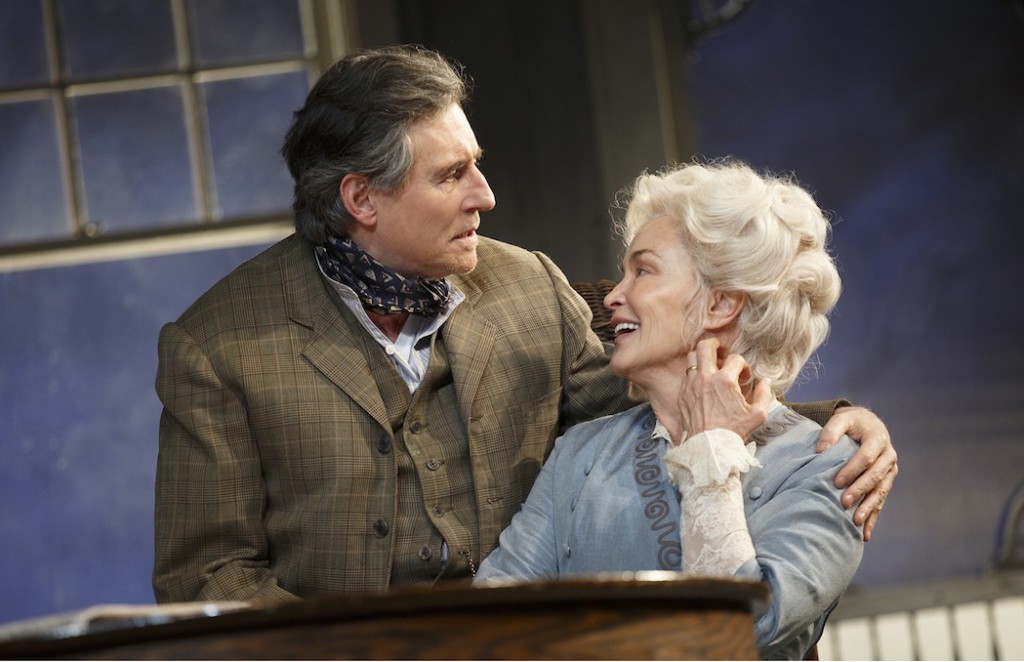

In light of the recent move back to naturalism and realism in contemporary American theater (Annie Baker, Danai Gurira), Long Day’s Journey Into Night is a fascinating study of its original foray into the milieu. The action takes place, as suggested by the title, over the course of a day, but is so exacting that we are able to almost learn everything there is to know about this family in that arc. Director Jonathan Kent extracts layer upon layer from every scene in the typically appointed New England living room. Tom Pye’s set slants from crazily high in the front to what seems like too low downstage, so that when Shannon stands booming at the edge of the set he looks and feels gigantic; while sickly Edmund cowers, miniscule, by the patio door, diminished by the low ceiling.
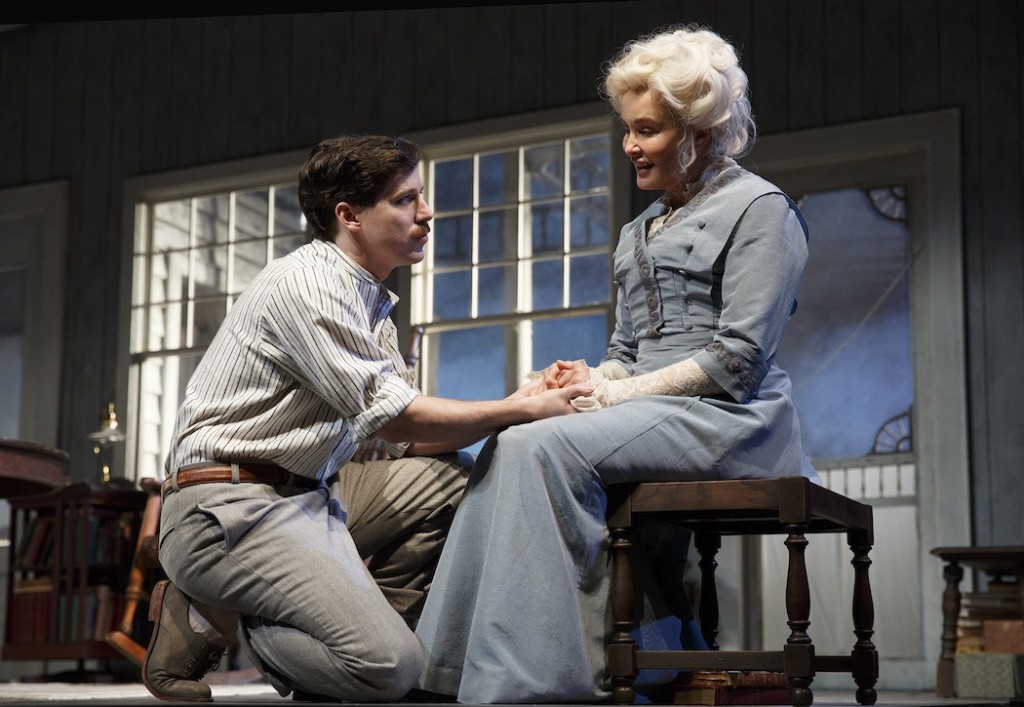

But the real attraction here is Lange, who has morphed over the last forty years from the sexy ingenue of the 1976 film King Kong to a grande dame of theater in the fashion of Katharine Hepburn, with her grey hair piled high, long elegant, lace-trimmed Victorian dress (costumes: Jane Greenwood) and her wringing hands. Every fiber of Mary Tyrone’s being—despite her wanting to escape—seems to be shouting through Lange the words of Linda Loman in Death of a Salesman, “Attention must be paid!” Indeed it must. And Lange makes it worth your while.
Long Day’s Journey Into Night. Through June 26 at the American Airlines Theatre (227 West 42nd Street, between Seventh and Eighth Avenues). www.roundabouttheatre.org
Photos: Joan Marcus


